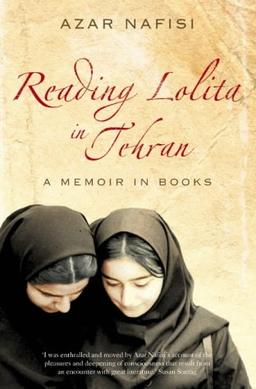Wednesday, August 26, 2015
BOOKS: Reading Lolita in Tehran
When I think back on my school years, it is usually the English teachers who stand out as the most profoundly influential. I think this maxim would be accepted by the students of Azar Nafisi, author of the fascinating memoir Reading Lolita in Tehran. I was transported by her account of her years as a professor of literature at various universities in Tehran in the wake of the Shah's fall and the rise of the Islamic Republic of Iran. The book is a witness to the horror of how a rather liberal and educated society can so quickly transform into a totalitarian theocracy, and of the sometimes surreal life under such rule. I'd had a fairly shallow and monochromatic understanding of modern Iran, so this book was very illuminating for me in filling in rich detail how the Islamic republic first arose amidst a complex mix of Islamists and a more Marxist-inspired revolutionary movement, and later how things changed (or didn't change) through the war with Iraq, and the death of Ayatollah Khomeini. But what makes the book work so well is that it is not focused on politics per se, but on literature and the lives of a group of especially motivated students who continue to meet with Dr. Nafisi, even after she is pushed out of the university, in order to study the works of great novelists. Early on, when her students were pressing her for her approval of their urgent revolutionary ideals, she insists that she is neither for the Islamists or the Marxists, rather she is for Jane Austen and Henry James. At one point in her class, they even put The Great Gatsby on trial. The interplay between the themes and characters of classic novels with the lives and struggles of the women in Nafisi's private study group is fascinating, with each providing a mirror that shows the other in a new light. Her students share a common desire to study literature, but little else. Some are married, some are not; some are religious, some are not; and so on. Their varied experiences provide threads of many colors for Nafisi to weave into an exquisite Persian carpet of a memoir.
Subscribe to:
Post Comments (Atom)


No comments:
Post a Comment